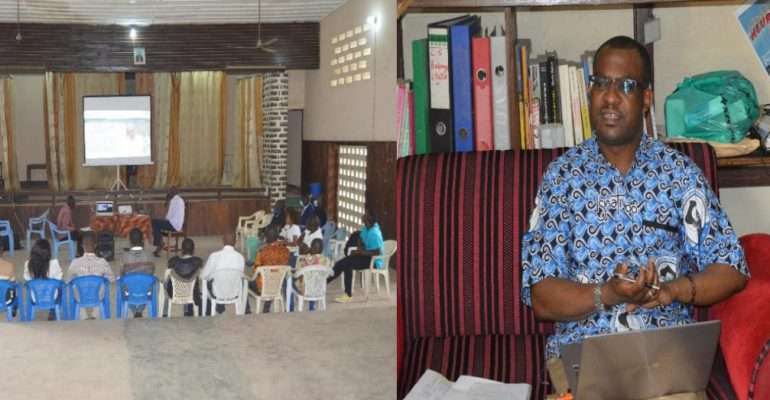Besides routine activities, the month of November 2021 was marked by the following activities at Centre Maisha:
- AJAN Director’s visit to the Maisha Center
- The official launch of the activities of the Ignatian year
- Mass in memory of the deceased beneficiaries the current year
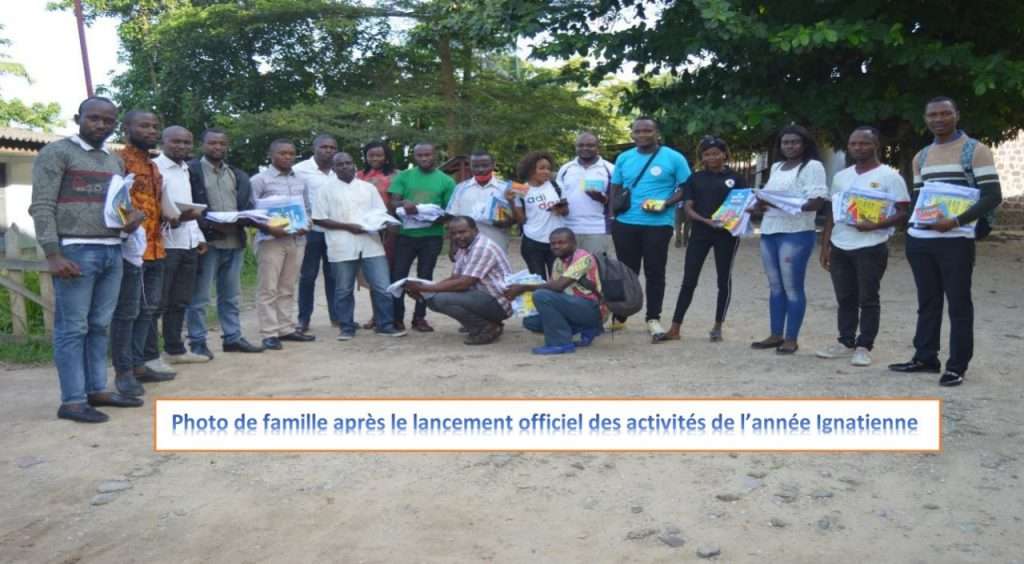
a) The visit of the Director of AJAN to the Maisha Center in Kisangani (DRC)
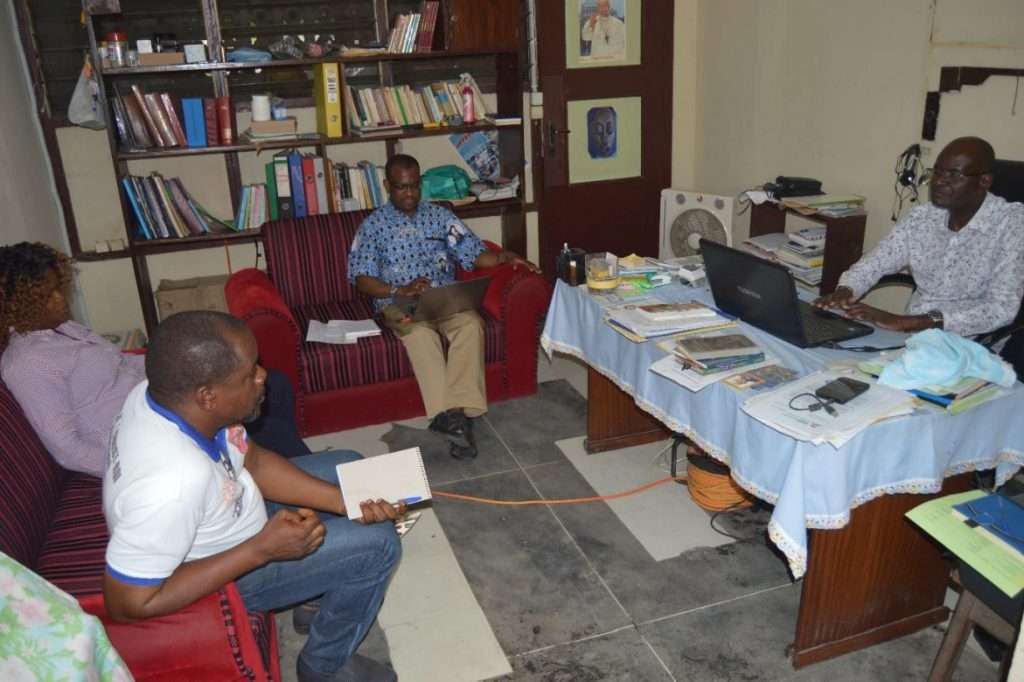
This visit by the Director of AJAN is part of the evaluation of the level of execution of the activities of the Ignatian Jubilee Year at the Maisha Center.
At the end of which, he encouraged all the Staff not to give up in the face of the COVID-19 pandemic which is deeply shaking our societies with harmful socioeconomic consequences. We thank him!
a) The official launch of the Ignatian Year’s activities at the Maisha Center
It all started with a conference-debate organized by the Director of the Maisha Center, during which two themes were successively presented to the animators chosen to carry out the Ignatian Jubilee activities in the field. It is :
1. The Maïsha Center and the protection of the Common House.
The Maïsha Center joins other Church initiatives to take care of the Earth, which is our Common Home.
It was the occasion for the Director of the Maisha Center to reveal to the participants the firm will of the Church to engage in reflection and in action in favor of an integral ecology.
It is around the presentation of the “Laudato Si Platform for Action” project launched by Pope Francis on May 25, 2021 that the Father Director focused his address.
He invited his interlocutors to an awareness which must be transformed into concrete actions in our daily management of life.
“We need a new ecological approach that can transform the way we inhabit the world, our lifestyles, our relationship with the resources of the Earth and, in general, our way of seeing humanity and living it. life “(Pope Francis).
Considering the seven objectives of the platform, the father invited them to apply themselves to responding to the cry of the earth and the cry of the poor, to work for the promotion of an ecological economy, to adopt a simple life, promote ecological education and spirituality, and encourage community and participatory engagement.
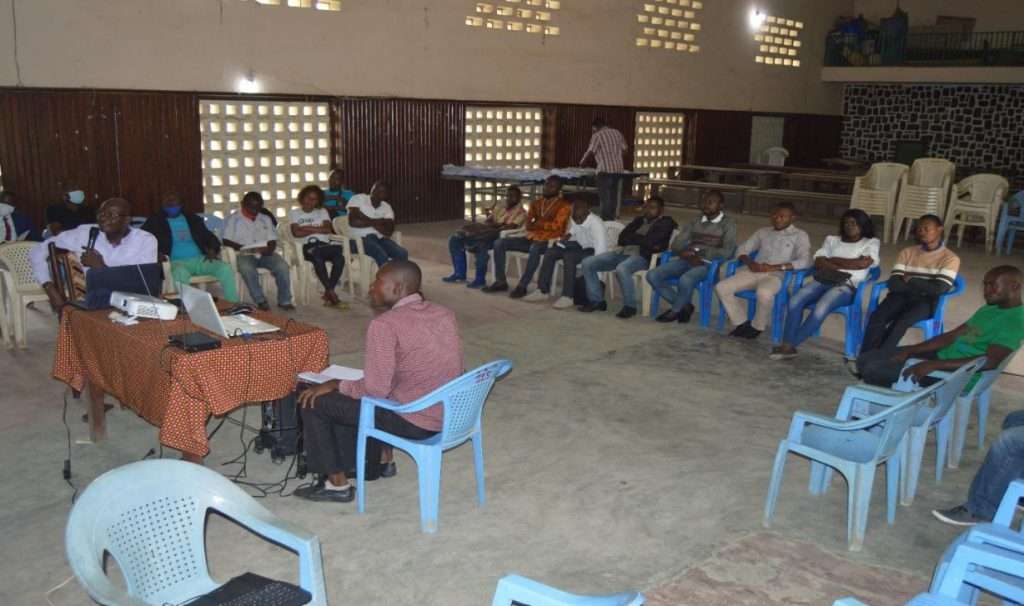
- The “Involvement of youth in the process of combating climate change (City of Kisangani / TSHOPO – DRC)” theme presented by Mr. Anselme ALIYO, Researcher in Environment.
The second lecture of the day entered in depth by touching on what puts the world in turmoil, namely, “climate change”. Indeed, we speak of climate change or climate warming, when the climate of a region or a given environment experiences regular disturbances following the effects of various environmental factors that act negatively.
These regular disturbances show changes that are observable in the characterization of the type of climate found in a well-defined area. But when these changes become recurrent several problems begin to arise and catastrophes are envisaged. The environment is deteriorating and the overall living conditions are becoming difficult. What is causing climate change ? What are the consequences and how can they be remedied?
These are questions to which the speaker addressed and provided some answers to enlighten the audience. We are all of the opinion that climate change (global warming) is sustained by human activities. It is therefore up to the human community to regulate its relationship with its environment to avoid disaster. To better understand human involvement, it is important to first understand a natural phenomenon which is the “greenhouse effect”.
It is a natural phenomenon essential to life on earth. The greenhouse effect is a heat trap. Sunlight passes through the atmosphere and is then absorbed by the warming earth. This reflects heat back in the form of an infrared ray. The presence in the atmosphere of certain gases such as carbon dioxide (CO2), methane (CH4), etc., prevents this heat from escaping.
Human activities produce ‘greenhouse’ gases, so the combustion of gas, oil and coal releases carbon dioxide. Likewise livestock and landfill release methane, the emission of certain chemicals also increases the ‘greenhouse effect’. Man would thus contribute to global warming. Climate change has a negative impact on health, ecosystems, agriculture and biodiversity.
This is why it is more than urgent that our youth become aware and commit not only to sensitize populations on the harmful effects of climate change and the risks they present, but also to initiate actions and micro-projects for the fight against climate change and reduce greenhouse gas emissions.
At the end of this conference-debate, the awareness-raising materials were given to the facilitators for the activities on the ground.
We collected the impressions of one participant:
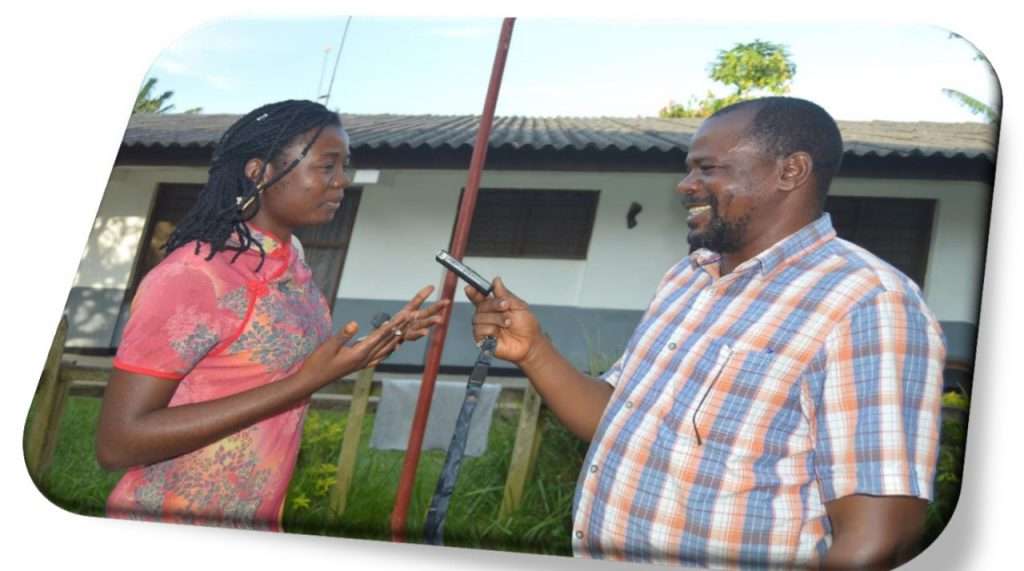
Q / What are your impressions of this conference-debate, at the end of which are launched the activities of the Ignatian year of which you are one of the animators?
R/ It was a very interesting conference; the presentation on “Involving youth in the process of combating climate change” touched me a lot because there are certain acts that we take on a daily basis that destroy our environment without realizing it. For example ; throw plastic bags everywhere after use, plastic bottles abandoned in all corners of the city. There are many examples to cite. I realize that these are practices posed out of ignorance. Today I am educated and I will disseminate it widely. Thank you to the Maïsha Center for this initiative.
C) Mass in memory of the deceased beneficiaries the current year
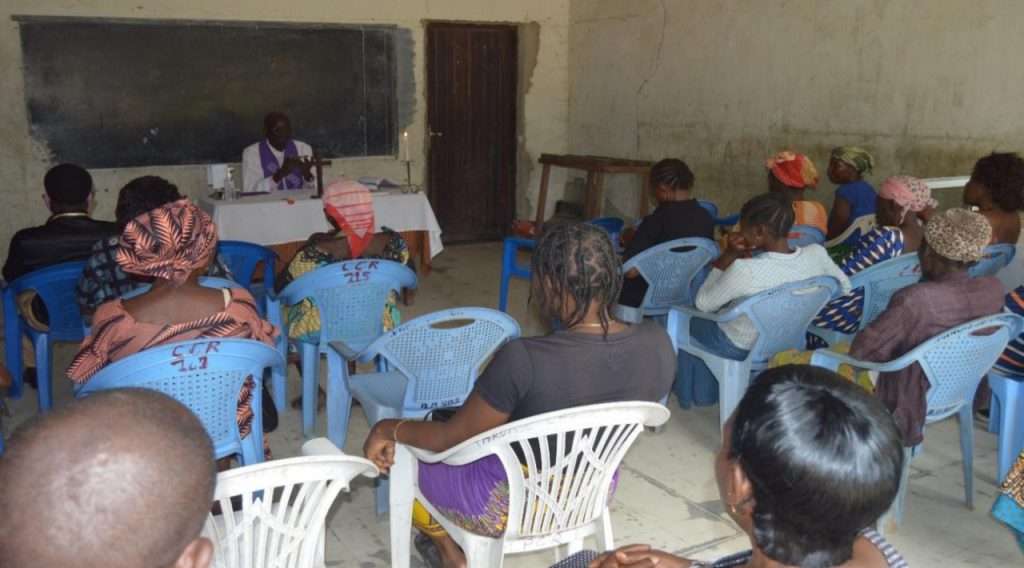
December 1st is World AIDS Day.
This year the theme chosen by UNAIDS is: Ending inequalities. End AIDS. End epidemics.
After 40 years of fight against this pandemic, the Maïsha center next year will be in its twentieth year of fight, we note with bitterness that economic and social inequalities are only increasing in the fight against AIDS. The presence of COVID-19 is worsening the already very precarious socioeconomic situation of people living with HIV / AIDS.
The Maïsha Center, although having no financial means, commemorated this day anticipatively, Monday, November 29 (day of the beneficiaries’ meetings) with a thanksgiving mass to pay tribute to the beneficiaries who died during this year. , About ten. Note that while we were celebrating Mass, a 19-year-old young man who died two days before was buried. He was born with this HIV infection.
The fight against AIDS has evolved a lot in many organized countries, where public health is the major concern of state authorities. As Ms Winnie Byanyima, UNAIDS Executive Director, testifies in her message for this day: “We see the near disappearance of AIDS deaths and new HIV infections in countries where leaders take bold action and concerted efforts, draw on the latest scientific discoveries, provide services that meet the needs of all people, protect human rights and defend adequate funding ”. While also recognizing failed steps; “But this is only the case in certain places and for certain people”.
Indeed, while elsewhere the rates of death and new infections are decreasing, unfortunately with us it is the opposite. We are registering new cases almost every two months.
May the souls of our beneficiaries who have preceded us behold the greatness of the goodness of God which they have not certainly experienced with their fellows.
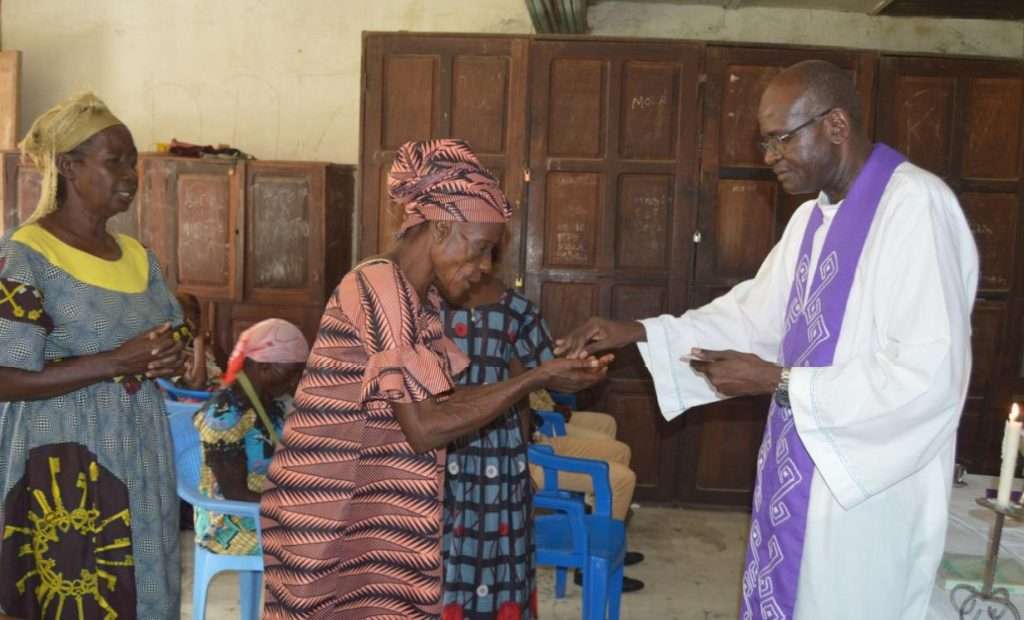
November 2021 Séverin Mukoko, SJ and Toussaint Angwambi

